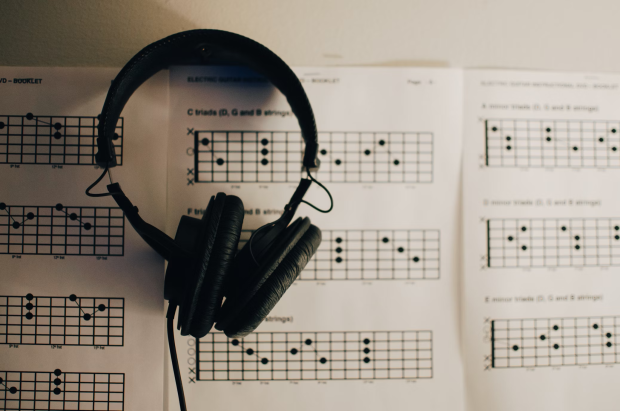How Music Shapes Your Student Identity
Music is more than just background noise while studying; it is a profound expression of individuality and a cultural identifier that can significantly influence and define a student’s life. For many students, music serves as a companion through late-night study sessions, a catalyst for social interactions, and a powerful tool for emotional and intellectual expression!
As students journey through their academic careers, the music they listen to can play a pivotal role in shaping their learning experiences and social interactions. From the playlists that motivate them during gym workouts to the songs that help them unwind after exams, music is there at every turn, influencing moods and behaviors and even impacting academic performance.
Furthermore, music is a way for students to establish their identity and connect with like-minded peers, much like how some students rely on services to help them excel in their studies. For instance, using a write my papers service can be a strategic tool for managing coursework, just as curating the perfect playlist is crucial for mastering the art of studying! Both tools reflect a student’s priorities and their approach to navigating the challenges of university life.
Musical Preferences as Personal and Social Indicators
Expressing Individuality Through Music Choices
The type of music you gravitate towards can say a lot about your personality. Psychologists have found correlations between musical preferences and certain personality traits.
For example, fans of classical music are often seen as more introverted but highly disciplined and adept at self-study, while those who prefer rock or punk may be viewed as more extroverted and nonconformist.
These preferences can influence how you study, the type of environments you find conducive to learning, and how you handle academic pressures.
Music as a Social Connector
Music also plays a crucial role in social interactions among students. It can be a conversation starter, a way to form bonds over shared tastes or even a reason to gather — think study groups, band practices, or attending concerts.
The music communities you engage with can become your support networks, providing not just entertainment but emotional support and encouragement throughout your academic journey.
Cultural Identity and Music
For many students, music is also a way to connect with their cultural roots or to explore other cultures. It can be a tool for maintaining cultural traditions or for fostering inclusivity and understanding among diverse student populations.
Music from different parts of the world can broaden perspectives, offering a more global view that enriches the educational experience.
Enhancing Learning and Productivity
Music’s Impact on Cognitive Functions
Research shows that certain types of music can enhance cognitive functions such as concentration, memory retention, and creative problem-solving. Instrumental music, particularly classical and ambient genres, is often recommended for study sessions as it tends to be less distracting and can create a productive environment for learning and creativity.
Music and Emotional Regulation
The student life can be stressful, with academic pressures and personal growth challenges. Music can serve as an effective regulatory tool for emotions, helping to manage stress, elevate mood, and even combat depression and anxiety.
It can act as a therapeutic element during challenging times, providing comfort and a sense of calm.
Music for Motivation and Energy
Upbeat and energetic music can be particularly motivating during physical activities like exercising or when you need a boost to get through intensive study sessions.
It can help in setting the pace for your activities and maintaining energy levels, making it easier to tackle daunting tasks.
Optimizing Study Sessions with Music
Understanding how to effectively integrate music into your study routine can dramatically enhance your focus and productivity. Tailor your playlist to include songs that help you maintain concentration for longer periods.
For many, classical music or jazz provides a soothing background that decreases distractions and increases the ability to focus on complex concepts.
Experiment with different music speeds or genres during various study tasks—perhaps classical baroque music for reading assignments and ambient sounds for solving mathematical problems—to find what best helps you retain information.
Building a Personalized Music Library
Creating a personalized music library that caters to different needs and moods can be an invaluable resource. Have playlists for different activities: one for calming music to de-stress, an energizing playlist for physical activities, and perhaps a collection of instrumental tracks for deep focus.
This approach allows you to easily access the right type of music based on your immediate needs, making it a practical tool for managing your day-to-day activities and responsibilities effectively.
Music as a Reward System
Use music as a reward to enhance motivation. After completing a difficult task or a long study session, allowing yourself time to enjoy your favorite music can serve as a powerful incentive and a form of positive reinforcement.
This not only makes the study process more enjoyable but also conditions you to associate hard work with pleasurable rewards, potentially increasing your motivation to tackle challenging tasks!
The Role of Lyrics in Learning
While instrumental music is often recommended for studying, don’t discount the potential benefits of lyrical music, especially for language learners. Songs in a foreign language can be a fun and effective way to improve language skills, helping to expand vocabulary and improve pronunciation.
Additionally, writing or analyzing the lyrics can enhance literary skills and foster a deeper appreciation for language and poetry.
Music in Group Settings
Music can also transform group study sessions into more dynamic and engaging interactions. Background music during group activities can help set a relaxed atmosphere, making it easier for everyone to contribute without the pressure of silence.
Choose music that’s universally calming or uplifting to foster a collaborative environment. However, it’s important to ensure that the chosen music enhances productivity for the whole group, not just a few members.
Final Thoughts: Defining Your Rhythmic Path
As you navigate your academic and personal growth, consider how music integrates into your life and what it says about you. It’s not just about the genres you prefer but how you use music to enhance your student experience, manage stress, and connect with others.
Music is a versatile and powerful element of student life that offers both comfort and stimulation, helping you not just to study but to thrive.
Embrace it as a part of your journey, explore new sounds, and let it inspire and define your path through your academic years and beyond!


